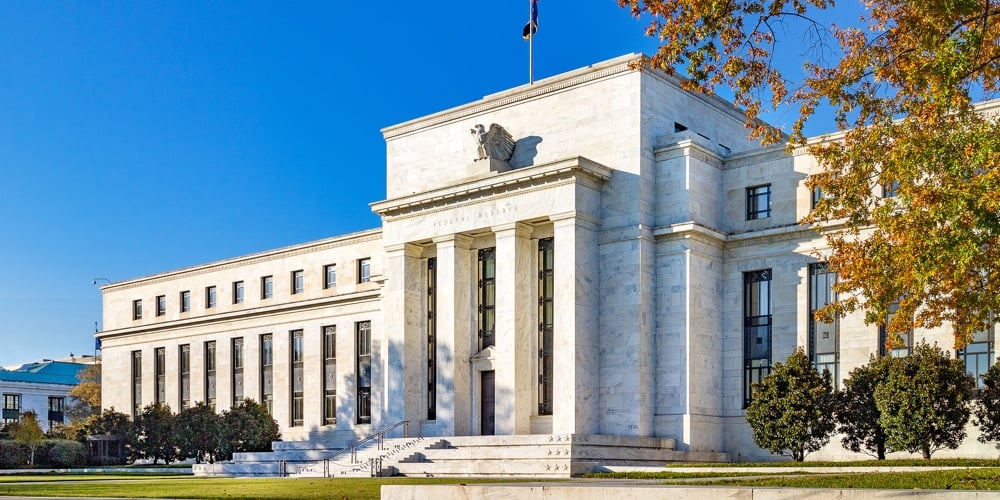Here we go again: Fed’s interchange proposal – An attempt to solve a non-problem

The Federal Reserve (Fed) met late last month to discuss debit interchange fees and routing under Regulation II. During that meeting, the Fed issued a request for comment to dramatically reduce debit interchange fees for non-exempt issuers. This is not the first attempt to bring down interchange fees – and it won’t be the last. But just like previous efforts, this is a proposed solution to a non-problem.
In 2010, Sen. Dick Durbin, D-Ill., added an amendment to the Dodd-Frank Act that capped debit interchange fees. Retail groups pushed hard for the amendment and got what they wanted. They promised lower prices for goods since they would pay less in interchange fees. But they broke that promise, and instead of seeing more money in their wallets, consumers only saw the cost of essential banking services increase. Debit reward programs were either slashed dramatically or disappeared completely.
A study from the Government Accountability Office (GAO) found that “covered banks were about 35 percent less likely to offer non-interest checking accounts without monthly fees” and “researchers estimated that if the regulation had not been implemented, 65 percent of non-interest checking accounts offered by covered banks would have been free.” The report also found that the Durbin Amendment was one of the most harmful laws relating to banking access and the cost of banking.
It’s clear that creating artificial price caps on interchange fees does nothing to help consumers and does everything to help big box retailers.
So why are we even talking about expanding this failed policy? We have 13 years of data proving the Durbin Amendment lined the pockets of retailers at the expense of everyday consumers. For the Fed to consider amplifying the problem – further limiting non-interest income for credit unions during economic uncertainty – is senseless. Non-interest income is paramount to the safety and soundness of the financial system, as well as ensuring Americans have access to affordable banking services. If anything, we should be undoing the harmful impact of the Durbin Amendment.
Credit unions use non-interest income, like interchange fees, to keep the cost of banking down – especially for those who need it most. Credit union credit card programs rely on those fees to keep interest rates low and provide affordable access to credit for their members, especially as banks close their doors. While retailers focus on padding their bottom lines and flaunting record quarterly profits, consumers continue to take hits to their financial situation. The cost of banking is increasing. The cost of goods and services is rising. Consumers are struggling, and all the retailers care about is grabbing every last penny they can from everyday Americans and the financial institutions that serve them.
During the Fed’s meeting, they claimed that the small issuer exemption was successful. The Fed’s own data contradicts this. Since 2011, interchange fees for exempt dual-message transactions have increased from 53 cents in 2011 to 64 cents in 2023. If that fee matched inflation trends, those fees should be roughly 73 cents. As for single-message transactions, they have dropped outright: 32 cents in 2011 to 27 cents in 2023. The exemption is a failure. There’s no sugar coating it.
The Fed also attempted to address rising concerns by increasing the fraud component of debit interchange fees. However, that doesn’t address the issue. Mitigating fraud, and funding secure card programs, requires more than evaluating only a narrow subset of costs. The Fed needs to stop evading a wholistic consideration of the funds needed to operate card programs and limit fraud in the debit payment network.
Federal Reserve Board Gov. Michelle Bowman was the only governor to vote against the proposal, reiterating many of the same points we have made over the years. In her comments, she said that “nearly one-third of bank issuers would not be able to recover even the subset of costs that factor into the interchange fee cap, let alone those debit card program costs that are disregarded in the cap.” She also pointed out “the costs for consumers—through the form of increased costs for banking products and services—will be real, while the benefits to consumers—such as lower prices at merchants— may not be realized.”
That’s the point NAFCU has made all along. Interchange fees are not a problem. Lowering them is crafting a solution in search of a problem and creating unknown consequences as a result. But this time, we do know the consequences: Consumers’ financial well-being suffers. The Fed must rise above retailers’ misleading claims and broken promises. Their own data points to the harm of artificial price caps on interchange fees. I urge the Fed to revisit this proposal and protect American consumers, not greedy retailers.

